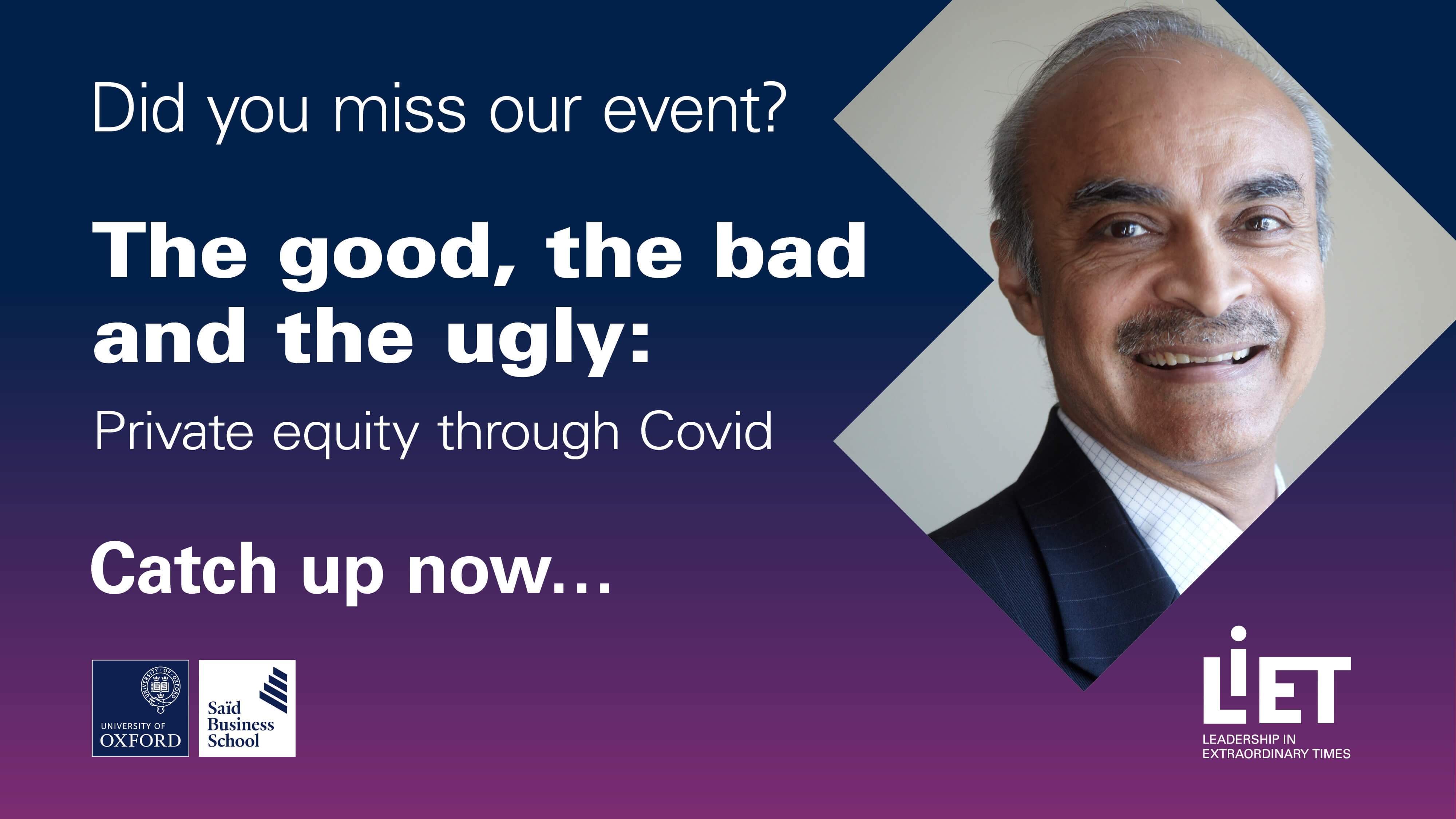The Good, The Bad and The Ugly: Private Equity and Covid-19

Watch the first episode of season 4
Or listen to the podcast on Spotify or Apple.
Against the highly challenging background of a global pandemic, as many firms collapsed and whole business sectors were hollowed out, some companies nevertheless proved themselves resilient. As Vindi Banga, senior partner at the private equity fund Clayton Dubilier & Rice, observed during the Leadership in Extraordinary Times broadcast on 5 May 2021, ‘Most of our portfolio companies – and we have about 35 – grew earnings in 2020 over the prior year, and more than half actually achieved their original annual budget.’
In a conversation with Ludovic Phalippou, Professor of Financial Economics at Saïd Business School, University of Oxford, Banga talked about why many private equity-backed companies weathered the Covid-19 crisis well, and addressed some of the controversial issues associated with the sector, including typically high levels of debt that have led to the collapse of some potentially viable companies, and the fact that so many PE-controlled companies were ‘rescued’ by the tax-payer. He argued that private equity was able to solve liquidity problems and provide the capital and partners to enable transformational growth. A fund that is thoughtful about its own reputation will not over-leverage and will invest to create sustainable value.
The discussion identified the distinctive characteristics of private equity that informed the sector’s response during the pandemic.
Focus
A private equity investment is the start of a defined five- or six-year period in which to deliver ‘a significant step-change in value’. Companies are strongly focused on time, speed of action, and cash-flow.
Agility
Private equity firms are able to move fast because they have only a very small group of shareholders – sometimes a single shareholder. Typically those shareholders are highly engaged with the company, knowledgeable about its strategy and operations, and able to align quickly with management.
Leadership
Private equity firms talk about backing strong leadership teams. In contrast with public companies, where a leader is appointed who then tends to appoint everyone else, ‘in the private equity business you need to get the whole football team on the playing field on day zero.’




